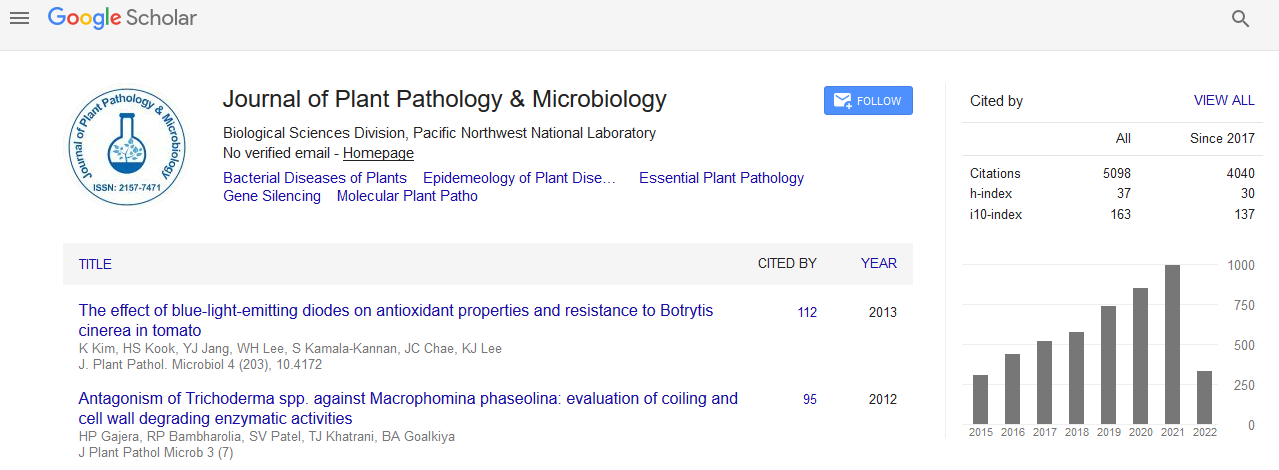PMC/PubMed Indexed Articles
Indexed In
- Open J Gate
- Genamics JournalSeek
- Academic Keys
- JournalTOCs
- CiteFactor
- Ulrich's Periodicals Directory
- Access to Global Online Research in Agriculture (AGORA)
- Electronic Journals Library
- Centre for Agriculture and Biosciences International (CABI)
- RefSeek
- Directory of Research Journal Indexing (DRJI)
- Hamdard University
- EBSCO A-Z
- OCLC- WorldCat
- Scholarsteer
- SWB online catalog
- Virtual Library of Biology (vifabio)
- Publons
- Geneva Foundation for Medical Education and Research
- Euro Pub
- Google Scholar
Useful Links
Share This Page
Journal Flyer

Open Access Journals
- Agri and Aquaculture
- Biochemistry
- Bioinformatics & Systems Biology
- Business & Management
- Chemistry
- Clinical Sciences
- Engineering
- Food & Nutrition
- General Science
- Genetics & Molecular Biology
- Immunology & Microbiology
- Medical Sciences
- Neuroscience & Psychology
- Nursing & Health Care
- Pharmaceutical Sciences
Abstract
Impact of Crop Residue and Corn-soybean Rotation on the Survival of Fusarium virguliforme a Causal Agent of Sudden Death Syndrome of Soybean
Soybean sudden death syndrome (SDS), caused by Fusarium virguliforme, is an economically important soilborne disease and is a major risk to many soybean [Glycine max, (L.) Merr.] production regions worldwide. Two-year studies were conducted in a greenhouse and in fields to examine survival of the fungus in corn-soybean residues. Corn kernels consistently showed significantly (P<0.05) higher F. virguliforme colony-forming units per gram of dry soil (CFU/g) in a greenhouse and in field micro-plots compared to no additional residue added treatment (control). None of the soil samples from commercial fields in Iowa showed significant (P<0.05) difference in F. virguliforme CFU/g within year of sampling, but between years there were numerical differences but not statistically different in samples if the previous crop had been corn, compared with winter wheat or soybean. In Fusarium spp. not causing SDS, CFU/g were significantly (P<0.05) higher in micro-plots amended with six different corn-soybean residue treatments compared with the control in 2008, while in 2009, only corn stock spread on soil showed significant (P<0.05) difference over the control. Our results suggest that a clean corn harvest could reduce SDS risk by reducing colonization of corn kernels that supports survival of F. virguliforme, while a considerable corn loss during harvest could increase SDS risk.


